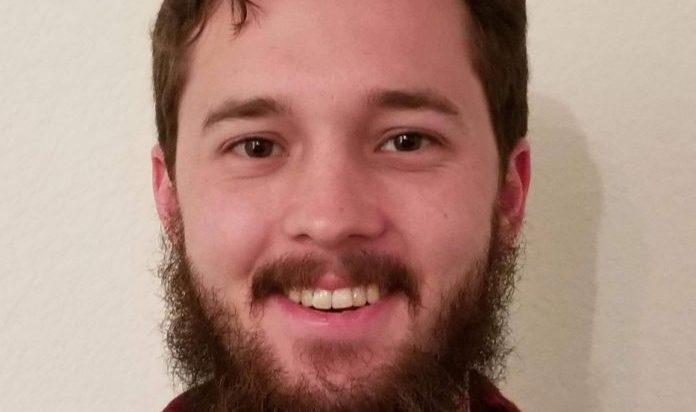Robert Anderson Felt A Growing Gap in His Coding Knowledge. Going to Boot Camp Helped Close It

A desire for self-improvement drew Robert Anderson to boot camp.
At the time, he was working as a quality analyst for a Colorado-based payment company. His job consisted mostly of the manual testing of software programs, but as the company grew, Robert noticed that a lot of the software testing responsibilities were transitioning to automation.
Eager to learn more, but without much free time—and only minimal web-development and coding skills—Robert knew that if he wanted to keep his skills fresh, he might have to go back to school.
On a friend’s recommendation, Robert signed up for the University of Denver Coding Boot Camp. What he thought was going to be just a course in coding turned out to be a master class in cooperation, communication, and collaboration.
First impressions
It became clear to Robert, even in his earliest days of the program, that the boot camp valued hard work and dedication. The collective excitement of the students and teaching staff contributed heavily to an atmosphere of pure enthusiasm.
“My first impression was that boot camp provided a really good environment to just buckle down and learn,” said Robert. “There was a lot of encouragement from the staff and the TAs.”
Thanks to his previous work experience, Robert started boot camp with what he thought was a solid foundation of basic coding skills. Sooner than he imagined, the curriculum surpassed his knowledge.
“All of the things that I knew were covered in the first two days,” Robert said. “Then on the third day, we learned something new. Our assignment that night was to go home and make something using our new knowledge. Right out of the gate, it was full immersion.”
Robert appreciated the program’s ambitious pace. The skills built on each other quickly, but if he ever got stuck, help was not far away. Some of his earliest collaborators were his instructors and TAs.
Teaming up
In his first boot camp project, Robert was partnered with a team of strangers and tasked to produce a musical artist search hub, where a user could plug the name of any artist into a search bar—and immediately be presented with relevant music videos, song lyrics, and touring information.
As his project team got to work, Robert noticed that everyone had their own area they wanted to focus on, which made it easy to divvy up responsibilities.
“At the start of it, we talked amongst ourselves and figured out what everyone was comfortable with and what everyone wanted to work on,” Robert said. “We were still finding our footing in the whole world of web development.”
Working as part of a team meant that Robert could focus on learning the skills that were most important to him and his career.
In the second project, Robert worked to build a tool that would help a user plan out a movie marathon. One of the most difficult aspects of this project was building out a back-end database that would store and protect account usernames and passwords.
This skill was not aligned with Robert’s goals, which focused on front-end development. But it was exactly the type of work that excited one of his back-end development teammates. The end project exceeded what any single group member could have accomplished individually.
Staff support
For the final project, Robert and his team set out to create a live trivia app that connected users within a certain area. When Robert got stuck, he was able to fully realize the value that team support can provide.
“During the final project, I was really struggling to get real-time questions to show up for everybody on our quiz app,” Robert said. Robert asked his TA, who reassured him that he had acquired the skills and the determination to solve the problem with his own ingenuity.
Sure enough, Robert did figure it out, and the group was able to produce a working prototype of their app in time for Demo Day. The project lives on to this day; working with his classmates-turned-friends post-boot camp, Robert hopes to polish the app and realize a commercial application for it.
Robert now finds himself as a crucial part of another team—working as a web developer at Avyst, a small insurance tech start-up, where he is one of only two developers working directly under the VP of Software Development.
While applying, Robert’s coding acumen set him apart from other candidates—but it’s the lessons learned in team work that reaffirm his status as a good hire.

 Live Chat
Live Chat